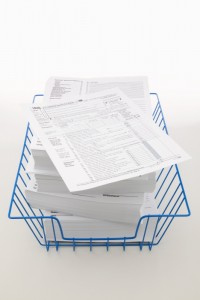
Nordic Countries are often considered as the best examples of welfare states, in which the economic and social well-being of the citizens is top class. This means various social benefits in the different stages of the life of a citizen, especially in the case of hardships, such as unemployment or sickness. On the other hand, this is enabled with efficient taxation, in which we all need to put our two cents (or more likely a bit more) to facilitate the sharing of wealth to those people and situations when it’s needed.
In both sides of the equation, there is a chance of misbehavior. Taxes can be avoided or mitigated. Social benefits can be gained without a legitimate purpose. Unfortunately, there are free riders in the welfare states, who violate the common rules by either not fulfilling their liabilities or getting benefits groundlessly.
From “fine-tuning” to organized tax fraud
The most common way of tax fraud is giving the tax office false information, which decreases the amount of taxes to be paid. Typical examples are not reporting all the incomes and exaggerating deductions due to work-related expenses. These may be related to rather modest amounts of value, but the volumes can be high, because this kind of “fine-tuning” can be carried out by any individual.
In the other end of the spectrum are organized criminals, who have more efficient ways to benefit from the system. An example is value-added tax carrousel also known as missing trader fraud. This assumes a number of companies that are located across a border between countries and selling goods to each other in a long chain. The carousel takes advantage of the VAT refunds paid by the government when the goods cross the border. At some point, one of the traders in the chain claims for the refund, but does not pay the VAT, and then disappears. The carousel can then continue to operate for ages, rotating the same goods between the countries, and netting the amount of unpaid VAT every time. This has been a serious problem especially in UK, but it is carried out in other countries as well.
There are various types of tax fraud in between these two ends. Typical ones are also falsified receipts by companies.
Social benefits misused
Social benefits mostly aim at helping individuals in situations in which they require financial support due to the circumstances in order to gain acceptable standards of living. It is possible to fake such circumstances or continue to get benefits even though the circumstances change.
Regarding social benefits, the most common fraud types are related to unemployment and housing. Typically, a person claims for unemployment benefits despite working at the same time. Another common fraud is false reporting of the people living in the same household, which may lead to gaining benefits, which the total income of the household would not assume.
There is also some amount of fraud in benefits paid from sickness. Some of them are related to fake permanent disabilities and some to fake sicknesses during employment. When the person is employed, it should also bore in mind that fake sickness hurts not only the social benefit institution, but also the employer.
All in all, social benefits fraud accounts for serious financial losses to the government. As an example, the Social Insurance Institution in Finland has approximated a loss of millions of euros every year.
Analytics to the rescue
There are various ways of identifying and managing public fraud. Tax offices are actively collecting tips about tax frauds from the public. The government organizations are also actively sharing information, which helps social insurance institutions reveal the fraudulent cases, for example in which the income of a person are too high for certain type of benefit. However, this kind of fraud detection is typically carried out ad hoc, and is very time-consuming and costly. Furthermore, this way the fraud could have already been carried out for a while, until detected.
Modern information technology can also help a great deal when tackling fraud. Current data integration technologies help in automating the data collection for analysis. Analytical methods help in finding anomalies in the behavior of an individual compared to his/her peer group, for example. Predictive analytical models can be used in modelling, what are the typical features of a fraudulent activity or a fraudster, which leads to smaller target groups for investigations. Network analysis helps in linking people and organizations together, which is of an utmost importance when examining complex, organized fraud cases which involve dealings between various stakeholders. Many of the analytical techniques can create automated alerts when something statistically suspicious is carried out in the tax or benefit scene. There are also various ways to visualize the phenomenon, which decreases the time from suspicion to making the decision whether fraud has actually been carried out.
All for one and one for all
The mentality should be “all for one and one for all”. If one is getting more and giving less than he/she should, this noble idea is not fulfilled.
Luckily, as mentioned, there are more and more sophisticated ways to tackle public fraud. These methods are bit by bit adopted by government organizations that are developing their analytical capabilities. As a positive example of applying modern analytics, Special Tax Inspectorate cut down the VAT carousel fraud in Belgium nearly 98%, resulting in savings of more than a billion euros yearly. In UK, HM Revenue & Customs was able to collect approximately 7 billion euros more taxes with the help of analytics.
I will look forward to the similar success stories in the Nordics. After all, preventing public fraud is one of the key elements when maintaining our position as the welfare states.
Read more insights about Fraud and Risk.

